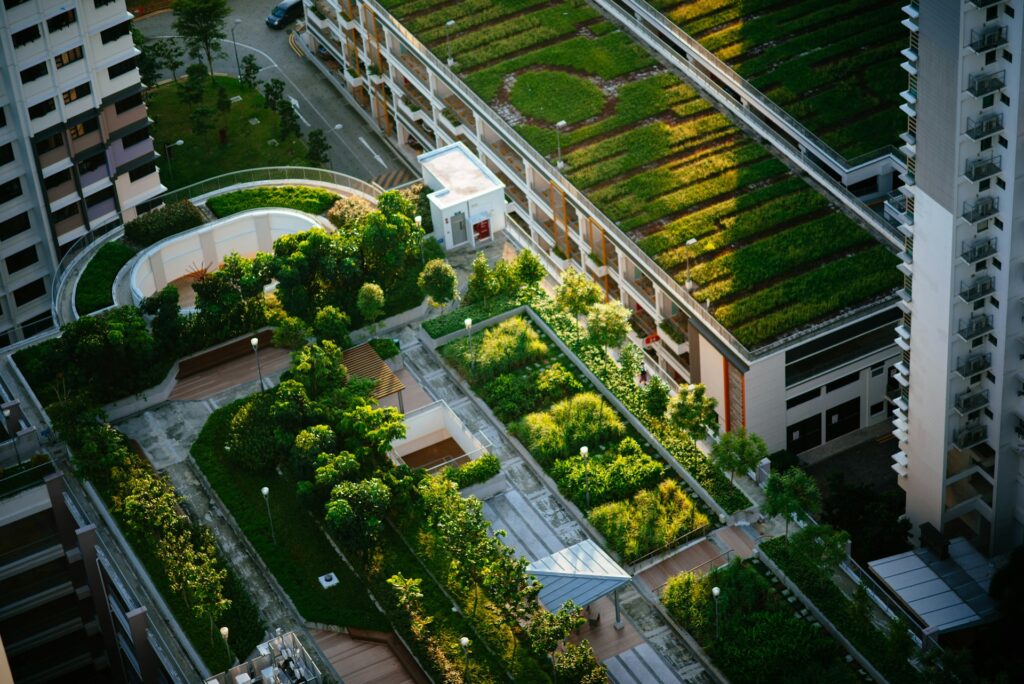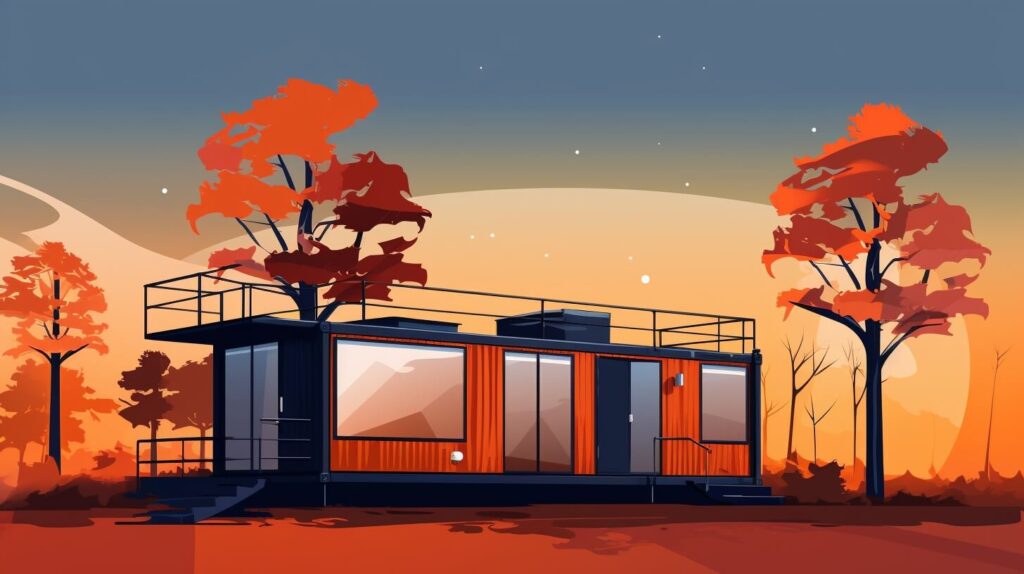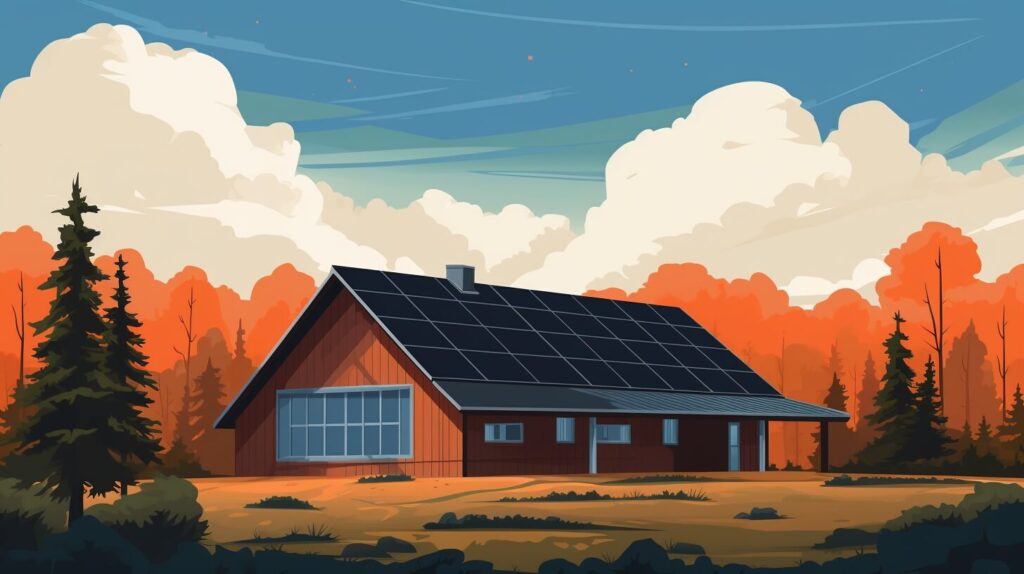Tiny House vs. Trailer Home: Making the Right Choice for Your Lifestyle

We are reader-supported. When you buy through links on our site, we may earn an affiliate commission.
What’s the difference between a tiny house vs. trailer home? Tiny houses are compact living spaces that emphasize minimalism. Trailer homes are houses on wheels. They’re famous for being affordable and adaptable.
Comparison of Construction and Design
Tiny houses are designed to be environmentally friendly and compact. They are usually 100 – 400 sq ft, sometimes even as small as 60 square feet and use sustainable materials, promoting a minimalist lifestyle. The focus is on creating functional and eco-conscious living spaces.
On the other hand, trailer homes are geared towards mobility, utilizing lightweight materials and balancing durability with weight for easy transportation. Its design provides adaptability to different locations while maintaining structural integrity.
Tiny houses are designed with customizable layouts and clever space-saving features, like foldable furniture or lofted beds, to make the most of limited space. In comparison, trailer homes focus on optimizing space and mobility by incorporating efficient layouts such as multipurpose furniture or compact kitchens, making them easy to move and adapt to different locations.
Cost Considerations
Considering costs is crucial when choosing between trailer homes and tiny houses. It helps you make informed decisions about construction or housing, ensuring a practical and sustainable choice based on mobility or compact living preferences.
- Tiny houses: These are budget-friendly upfront because they’re small and have straightforward construction. A DIY tiny house project might typically cost between $20,000 to $50,000 — depending on materials and customization.
- Trailer homes: Affordability comes from mass production and standard designs. On average, a new trailer home can cost between $30,000 to $100,000, offering cost savings through efficient manufacturing processes.
Long-term Expenses
Choosing a tiny house means enjoying ongoing savings with reduced utility costs and lower maintenance expenses. Smaller spaces require less energy for heating or cooling, leading to cost-effectiveness. Maintaining these simplified structures typically includes annual costs ranging from $500 to $1,000 for maintenance and utilities.
While trailer homes offer initial affordability, it’s important to consider higher maintenance costs and depreciation over time. Frequent movement and exposure to the elements can increase maintenance needs. On average, you’ll need to keep around 1% of your home’s purchase price yearly for maintenance, depending on location and build quality.
Mobility and Flexibility
Tiny houses allow you to move to different places or even travel with your home. For instance, you might take your tiny house to a serene countryside or go on a road trip. Moving a tiny house could cost a few hundred to a couple of thousand dollars, depending on the distance and moving services.
Trailer homes are designed for easy transportation and relocation. Around 7% of households in the United States or about 22 million people, live in these homes.
Imagine a family deciding to move their trailer home to a new city for job opportunities. Towing a trailer home may cost a few hundred to a couple of thousand dollars, depending on the distance and chosen service.
Legal Considerations
When it comes to tiny houses, legal considerations involve zoning regulations and building codes that may limit mobility options. Some areas might require adherence to traditional housing regulations, including a minimum square footage your tiny home must meet, impacting where you can place or move your tiny house.
Legal aspects for trailer homes revolve around regulations and specific to mobile homes and trailer parks. A trailer home usually doesn’t need a permit as it’s considered personal property. However, a permit is necessary if built on a foundation, costing around $1,350.
These rules can dictate where you can park or place a trailer home — adherence to them is crucial to avoid legal issues. Mobile home parks, for instance, often have specific guidelines that residents must follow.
Environmental Impact
The difference between a tiny house vs. trailer home is tiny houses often incorporate solar panels on their roofs, harnessing the sun’s power to generate electricity. This reduces reliance on traditional power sources and minimizes the environmental impact.
Tiny houses frequently utilize eco-friendly systems like composting toilets and rainwater harvesting. These systems contribute to a more sustainable lifestyle by minimizing water waste and promoting responsible source management.
Many modern trailer homes come equipped with energy-efficient windows and appliances. These features help conserve energy and reduce the overall environmental footprint of the home.
The energy of the trailer home can vary depending on their design. A trailer home with thoughtful design considerations, such as proper insulation and efficient heating and cooling systems, can significantly reduce energy consumption.
Older trailer homes might have a higher environmental impact due to outdated construction materials and less energy-efficient features. However, investing in retrofits or choosing newer models can mitigate these concerns.
Ecological Footprint
Tiny homes have a smaller ecological footprint, using less materials and energy. They’re easier to heat and cool, saving energy and reducing utility bills. With features like composting toilets and rainwater harvesting systems, they exemplify sustainable living practices.
Being larger, trailer homes can have a higher ecological footprint. Energy-efficient windows and appliances, along with waste reduction measures like recycling, can help mitigate their impact on the environment. Choosing eco-friendly materials for construction also plays a crucial role.
Lifestyle and Personal Preferences
Today, traditional homes typically cost around $500,000 and use many raw materials. That’s why tiny houses are ideal for individuals or couples who prefer a simple and eco-friendly. Perfect for those wanting a closer connection to nature and off-grid living, it suits those ready to embrace the challenges and benefits associated with downsizing.
Trailer homes suit individuals, couples and families seeking more space and traditional amenities. Offering a balance between comfort and mobility, trailer homes are great for those valuing community living in trailer parks. Whether for a more permanent living arrangement or flexibility in relocation, trailer homes carer to diverse preferences.
Tiny House vs. Trailer Homes
Deciding between a tiny house vs. trailer home is about matching your lifestyle. A small house might be the right fit if you prefer a minimalist, eco-friendly lifestyle and a closer connection to nature. For those seeking more space, traditional amenities and flexibility in relocation, a trailer home could be the better choice. It’s all about understanding your priorities and finding what aligns best with your lifestyle and preferences.







